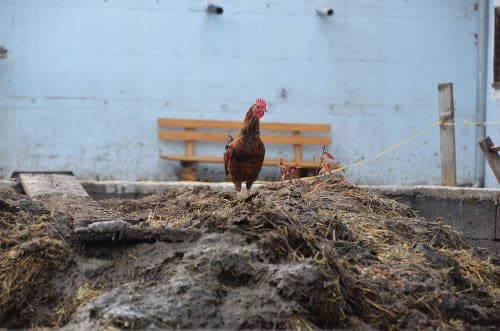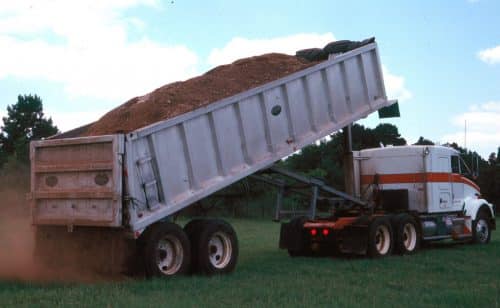Poultry waste has the potential to be used as a source of renewable energy and to partially replace coal

Wet chicken coop waste, which has undergone a treatment called hydrothermal heating, has been converted into coal fuel that can be used, and has the potential to replace up to approximately 10% of the coal intended for use in electricity generation. In this way it is possible to reduce greenhouse gas emissions and provide an alternative source of energy. This is according to a new study by researchers from Ben-Gurion University of the Negev.
According to the researchers, "Environmentally safe disposal of chicken coop waste has become a significant problem. The conversion of poultry waste into solid fuel, as a source of renewable energy, is an important environmental alternative that requires fewer resources, and may also reduce dependence on fossil fuels."
According to the study whose findings were published in the journal Applied Energy, researchers at the Zuckerberg Institute for Water Research at Ben-Gurion University of the Negev, compared the production, combustion and gas emissions of biochar and hydrochar. Biochar is created by slowly heating biomass at a high temperature (on average 450 degrees Celsius or higher) in an oxygen-free oven in a process called pyrolysis, and is the more common charring method. Hydrochar is produced by heating wet biomass to a much lower temperature, up to 250 degrees Celsius, under pressure in a process called hydrothermal charring (HTC). It can be said that the process that takes several hours mimics the natural coal formation process that takes thousands of years.
"The researchers, research student Vivian Mao, and Professor Amit Gross, head of the department ofHydrology and Microbiology of the environment at the Zuckerberg Institute for Water Research, the Institute for Desert Research at Ben-Gurion University of the Negev, found that chicken coop waste processed as hydrochar is about 24% more energy efficient compared to biochar production. It was also found that "hydrochar of poultry waste burns in a similar way to fossil coal, a significant factor in replacing coal with hydrochar (a source of renewable energy)".

For the first time, the researchers showed that hydrochar production at high temperatures resulted in a significant reduction of methane (CH4) and ammonia (NH3) emissions, but also a certain increase in carbon monoxide (CO) emissions.
"This research is another milestone towards the development of an alternative renewable fuel" explains Gross "Our inventors may help significantly in reducing emissions of greenhouse gases, related to electricity production and agricultural waste. Field experiments are planned with chicken coop waste that will undergo hydrothermal treatment in order to confirm the estimates from the current laboratory research.
The research was funded through the Israeli Ministry of Environmental Protection and the Rosenzweig-Kuperschmitt Foundation. The PhD candidate from Ben-Gurion University of the Negev, Vivian Mao, Received financial support from the Israeli Ministry of National Infrastructures, Energy and Water (Ministry of Energy), the Rieger Foundation and the Zuckerberg Scholarship Fund at the Zuckerberg Institute for Water Research at Ben-Gurion University of the Negev.

4 תגובות
With proper treatment, it is possible to produce methane-based energy gas (biogas) from the poultry waste in an anaerobic biological process. Until now, the concentrations of nitrates in waste have prevented the widespread use of anaerobic processes as a solution for handling chicken coop waste, but in recent years there are more and more companies that have found an effective solution to the nitrate issue (constitutes monitoring in the process) and are using chicken coop waste to produce green energy.
Further to my response:
http://allafrica.com/view/group/main/main/id/00057176.html
On this it was said: "Good morning Eliyahu"
Because: in nomadic societies, the use of firewood as a fuel is well known and known,
In "developing" countries in Africa and Asia, excreta / feces are processed
of farm animals for exchange use instead of charcoal-wood,
Recently there is more and more use of human excrement
collected from dry waste houses
The faeces undergo processing that neutralizes the pathogens and the smell
and is used as coal
And this is how the forests are protected from being cut down...
Isn't it more energy efficient to use waste as fertilizer?